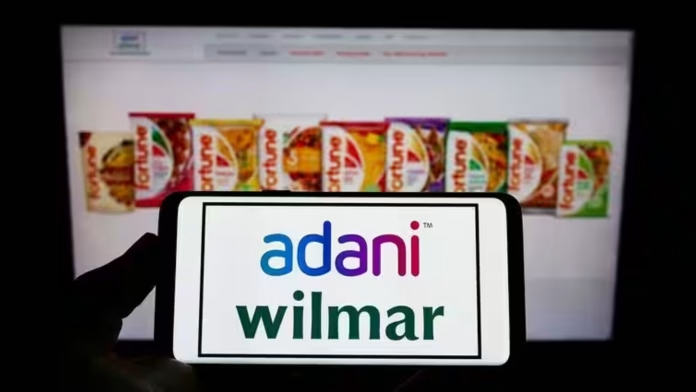Adani Wilmar, a major player in the FMCG industry, reported in a regulatory filing that their profitability for the quarter ending on March 31, 2023 was negatively impacted by various factors. These included rising costs for packaging and logistics, ongoing decreases in edible oil prices, and the financial burden of maintaining high-cost inventory. In particular, inflation was cited as a contributing factor to the increased costs of packaging and logistics.
“H1’23 witnessed multiple macro events causing high volatility in edible oil prices, with record high prices in Q1 and subsequent crash of prices in Q2,” said the company adding that in H2 of 2023, prices gradually declined to reach lower levels, leading to better demand trends.
Adani Wilmar stated that there was a comparable pattern in food prices, with a significant increase in inflation during the first half of 2023 followed by a decline in the latter half of the year.
According to its Q4 results, the manufacturer of Fortune oil revealed a 7% decrease in its combined revenue to INR 13,873 crore, attributed to a drop in edible oil prices. Adani Wilmar also disclosed a 7% rise in revenue for FY23 at INR 58,185 crore compared to the previous year. However, its profit after tax experienced a 60% decrease, amounting to INR 582 crore.
In FY23, the company achieved a significant milestone by surpassing 5 million metric tonnes in sales, driven by the expansion of select products and a sizable addressable market.
Angshu Mallick, MD, and CEO, Adani Wilmar, said, “We are investing in the business to support our growth. Our margins during the quarter and full year got impacted by high-cost inventory in a falling edible oil price environment, inflation impact on our operational costs, and an increase in interest costs due to rate hikes.”
In FY23, Adani Wilmar’s revenue was mainly driven by the sale of edible oils, which constituted just over 60% of the revenue at INR 46,104 crore. The food and FMCG business contributed to 16% of the revenue, while industry essentials contributed to 22%.
Commenting on its edible oil business, the retailer said, “The segment’s branded sales volume grew by 4% during the quarter, on the back of good consumer demand due to softened edible oil prices. However, overall oil sales volume was dragged down due to lower demand from the bakery and frying industry.”
Adani Wilmar aims to apply the same strategies that led to the success of its edible oils business to its food and FMCG segment, which recorded a revenue of INR 4,053 crore in the 2023 fiscal year, marking a significant increase from the previous year.
The brand reported making significant progress and increasing its market share across various food products.
Adani Wilmar disclosed in its regulatory filing that its wheat flour and rice businesses both achieved revenue exceeding INR 1,000 crore in FY23.
“Both of our top product categories – Wheat Flour and Rice have been growing well. The Company expects the strong growth to continue in both the products for many years, given the large headroom in the kitchen essential products.”
The FMCG giant stated that it plans to capitalize on the brand value of Kohinoor, a basmati rice brand it recently acquired, and has set its sights on strengthening its position in the rice market.





